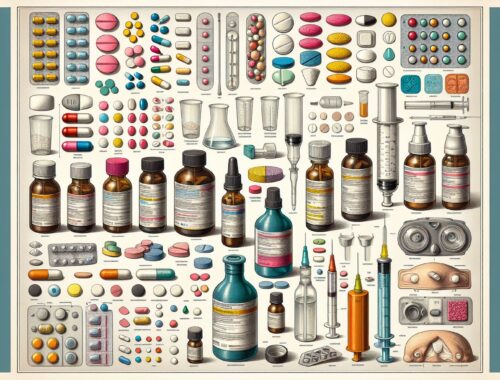
Understanding the Different Types of Medicines
Medicines are an integral part of healthcare, playing a crucial role in preventing, treating, and managing various health conditions. With numerous medications available, each designed to target specific ailments and symptoms, it can be overwhelming to understand the different types. In this blog post, we will explore the various categories of medicines and their purposes.
Introduction to Medicines
Medicines are substances or compounds specifically formulated to alleviate illness, restore health, or manage chronic conditions. They are typically classified into several categories based on their mode of action and intended effects on the human body.
Over-the-Counter (OTC) Medicines
Over-the-Counter drugs, commonly known as OTC medicines, are readily available without a prescription. These medications are deemed safe for self-administration and are used to alleviate mild symptoms. OTC medicines include pain relievers, cough suppressants, antacids, and allergy medications. While generally safe, it is essential to follow dosage instructions and consult a healthcare professional if symptoms worsen or persist.
Prescription Medicines
Prescription medicines require a written order from a licensed healthcare provider. These medications treat moderate to severe health conditions, and their usage necessitates medical supervision. They are prescribed based on a thorough evaluation of the patient’s medical history, current health status, and specific needs. Prescription medicines encompass a wide range of drugs such as antibiotics, antidepressants, blood pressure medications, and chemotherapy drugs.
Generic Medicines
Generic medicines are cheaper alternatives to brand-name drugs, offering the same active ingredients, dosage, and therapeutic effects. After the exclusivity period of a brand-name drug expires, other manufacturers can produce generic versions, reducing costs for consumers. Generic medicines undergo rigorous testing to ensure bioequivalence with their brand-name counterparts, making them safe and effective alternatives.
Over-the-Counter vs. Prescription Medicines
While both OTC and prescription medicines provide treatment, they differ significantly in their usage and availability. OTC medicines are easily accessible, allowing individuals to self-diagnose and self-treat common conditions without consulting a healthcare professional. Conversely, prescription medicines require a doctor’s expertise, ensuring appropriate treatment for complex or severe illnesses. It is crucial to understand the indications, usage guidelines, and potential side effects of any medication before taking it.
Alternative and Complementary Medicines
Alternative and complementary medicines refer to treatments outside of conventional medical practices. These treatments may include herbal remedies, acupuncture, chiropractic care, and homeopathy. While their effectiveness remains a subject of debate, many individuals find relief through alternative therapies. It is essential to consult with a healthcare provider before incorporating alternative medicines into a treatment plan, as potential interactions with conventional medicines can occur.
Conclusion
Understanding the different categories of medicines is essential for responsible self-care and informed decision-making. Over-the-counter medicines provide relief from minor symptoms, while prescription drugs address more severe conditions under medical supervision. Generic medicines offer cost-effective alternatives, while alternative and complementary therapies offer additional options to promote wellness. Always consult healthcare professionals for guidance on choosing the most appropriate medication for your specific health concerns. Remember, safe and effective medication use is a collaborative effort between patients and healthcare providers.
You May Also Like

Understanding Different Types of Medicines
January 1, 2024
A Guide to Different Types of Medicines
February 14, 2024

